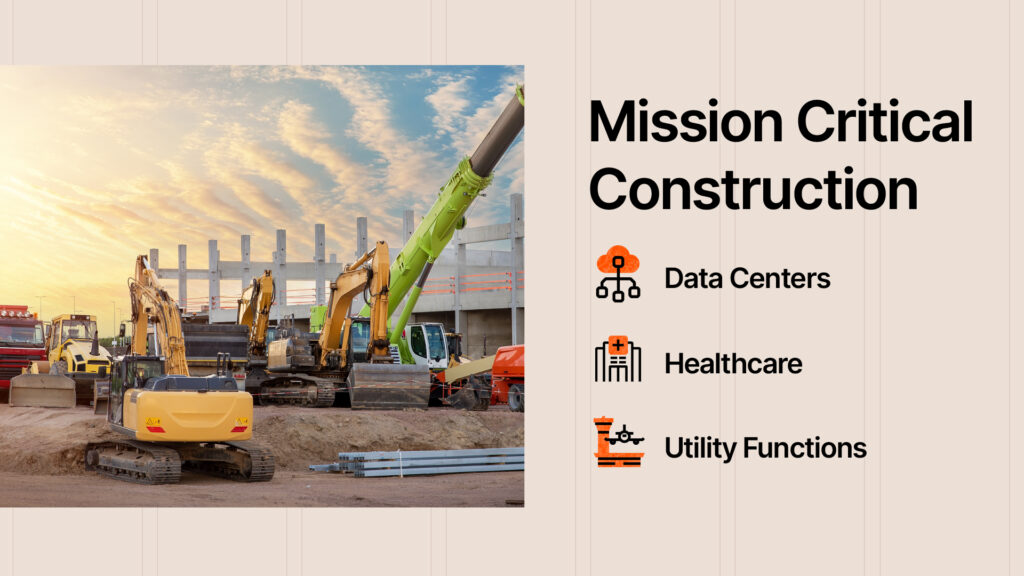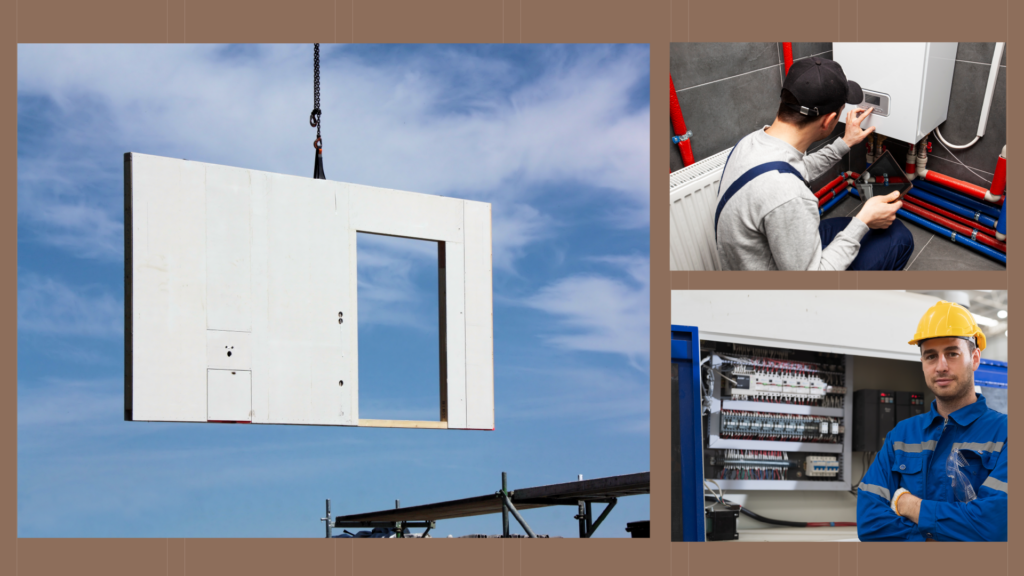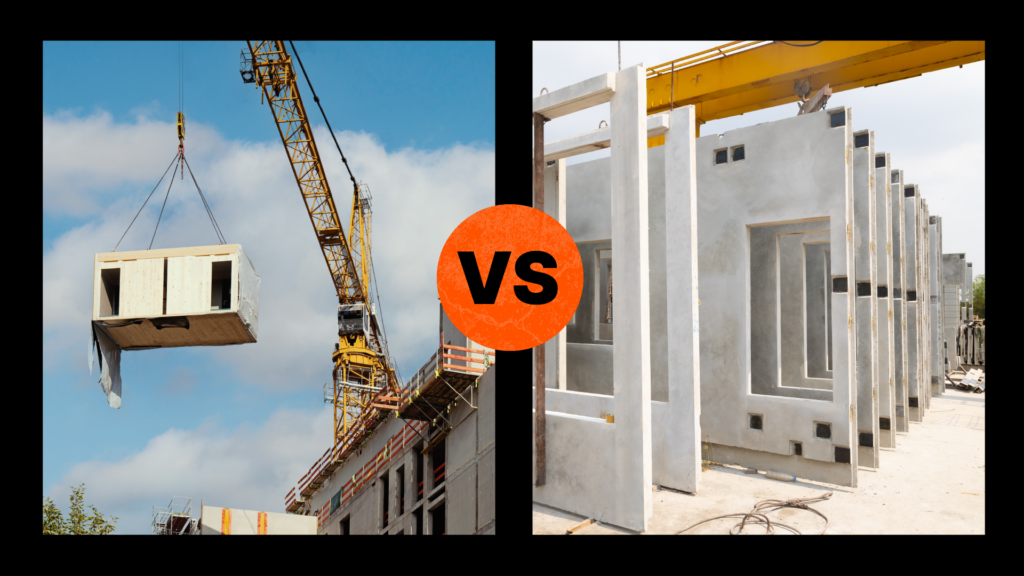— 4 min read
The Evolving Landscape of Construction Leadership
Last Updated Mar 28, 2025
Last Updated Mar 28, 2025

The construction industry stands at a pivotal moment, grappling with a widening knowledge gap as experienced workers retire, labor shortages persist and technology quickly evolves. To thrive in this landscape, leaders must find ways to preserve important industry expertise while embracing modern construction culture, processes and leadership approaches.
This shift prompts an urgent question: How can today’s leaders navigate these challenges effectively, and what must they do to evolve and lead successfully in the future?
Table of contents
The Importance of Culture in Construction
A core change in the construction industry is focusing on company culture, which is greatly influenced by leadership. It's no longer just a side issue: A strong culture is now the foundation of successful construction companies. This understanding comes from seeing how company culture greatly affects the ability to attract and keep the skilled workers needed to thrive in today's world.
What is company culture?
Company culture is a set of shared values and practices that shape the ethos or "personality" of an organization. It is expressed through how employees collaborate, the company's strategy and vision and the outcomes of business performance.
There's no doubt that a strong culture drives strong business results. Those [organizations] with strong cultures tend to succeed and grow, while others struggle. If they want to attract the best people to do the work — often difficult work — companies need to invest in their culture, because it's about the people.
Kris Lengieza
Vice President, Global Technology Evangelist
Procore Technologies
Investing in people is key for attracting and retaining talent. When a company creates a healthy culture and an environment where excellent work is done, talented individuals will be drawn to it.
The connection between culture and action underscores the importance of creating a workplace where employees feel valued, respected and empowered.
Building Up New Construction Leaders
Faced with an evolving workforce and a pressing demand for skilled professionals, there is a huge opportunity for construction companies to create environments that support continuous learning, transparency and purpose-driven leadership to remain competitive and address the impending labor shortage.
Companies need to cultivate environments that foster a culture of learning, transparency and purpose-driven leadership. This goes beyond basic onboarding and includes providing ongoing opportunities for growth and development. According to a report by Culture Amp, which focuses on employee feedback, data from various construction companies revealed that 64 percent of people in the industry desire opportunities to grow and learn.
We need to make those expectations very, very clear. We want people to ask questions. We want people to grow and develop. We expect all of our employees to take a minimum of 30 hours of development each year. We provide updated resources so they can learn various aspects, including both soft and hard skills. About 70% of what we learn is experiential, meaning learning on the job. A strong onboarding process is vital for building high-performing teams.
Gilbane, a 150-year-old family-owned business with deep-rooted values, believes that everything starts with the onboarding process. In their first five days, new hires learn what is expected of them and begin forming relationships with their direct manager and leaders. After their first week, new employees enter what Gilbane calls the foundation phase, where they delve deeper into the culture, history and values of the company. Senior leadership is present, making it an engaging event. This comprehensive onboarding process helps new employees feel grounded, informed and connected from the start.
Steve Duvel
Senior Vice President - Operations Support Services Leader
Gilbane Building Company
When companies create a learning environment and promote purpose-driven leadership, they will be able to leverage culture as a competitive advantage — not only making a positive impact on the lives of their employees but the overall brand of the organization.
Courses about construction.
For construction.
Unlock your career potential with our free educational courses on Health & Safety, Data in Construction, and more.
The Changing Face of Leadership
Leaders in the industry are adjusting their approach with innovative ideas, and a deep commitment to building a better future. These leaders, often hailing from different backgrounds and possessing an array of life experiences, are challenging long-held assumptions and driving positive change within their organizations.
The genius is in the company. Are you talking to enough people to understand the problem? And to hear all the potential solutions? This emphasis on listening, seeking input from differing perspectives and empowering others to contribute their ideas is a hallmark of this new leadership paradigm.
Kris Lengieza
Vice President, Global Technology Evangelist
Procore Technologies
The emerging generation of leaders exhibits a deep-seated motivation for purpose, impact and making a tangible difference in the world. This intrinsic desire to contribute to something larger than themselves resonates strongly with the values of younger generations entering the workforce.
The Future of Leadership in the Construction Industry
The future of construction leadership hinges on creating a healthy culture where individuals can grow and are empowered to contribute their best work. This investment in culture and leadership can help enable construction companies to address labor shortages, upcoming retirements and technological changes.
If you're interested in learning more about how Procore can help with leadership development and culture transformation, please email industrycultureteam@procore.com or visit procore.com/industry-culture.
Was this article helpful?
Thank you for your submission.
0%
0%
You voted that this article was . Was this a mistake? If so, change your vote here.
Scroll less, learn more about construction.
Subscribe to The Blueprint, Procore’s construction newsletter, to get content from industry experts delivered straight to your inbox.
By clicking this button, you agree to our Privacy Notice and Terms of Service.
Categories:
Tags:
Written by
Lisa OBrien
Lisa OBrien is the Director of Industry Culture at Procore Technologies. Lisa leads a team of culture strategists and coaches who support the company's vision to improve the lives of everyone in construction. With over 20 years of experience in executive coaching, organizational development, change management and leadership training, Lisa helps Procore's clients and partners create and sustain high-performing and healthy cultures that foster innovation, increase collaboration, and drive business. Lisa has worked with leading organizations such as McKinsey & Company, Diversitas and the Institute of Coaching at Harvard Medical School, to design and deliver impactful executive coaching and learning programs that enhance individual and collective growth, resilience and well-being.
View profileExplore more helpful resources

Mission Critical Construction: Strategies for Success
Mission critical construction involves building structures whose functions cannot afford to fail, as any disruptions can lead to significant consequences for society. Keeping data centers, hospitals, power plants and other...

Modular Construction and MEP: A Collaborative Pairing
In an age of supply chain disruptions, workforce shortages, and rising material costs, off-site construction — including modular construction methods and prefabricated materials — is surfacing as a multipurpose solution....

Connected Construction: Transforming the Industry Through Integration
Construction projects are becoming increasingly complex, so companies need to innovate to accurately and profitably complete these modern structures. Connected construction — using technology and data to improve communication, processes...

Off-Site Construction: Prefab vs. Modular
As the construction world becomes ever more competitive, deadlines get tighter and the margin for error gets slimmer, project owners around the world are always looking for an edge. Thanks...